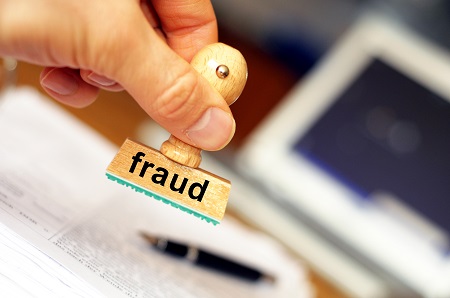Fraud multiplies when people are at their most desperate.
COVID-19 has people understandably worried about their ability to provide for their families. Unfortunately, people are able to justify some pretty terrible behavior in their minds when they’re worried about their ability to provide for their families. One recent example: people who are short of cash but also terrified to go to the grocery store are luring Instacart shoppers with huge tips. Once the groceries are delivered, they switch the tip to zero.
Another equally awful example: people are signing up to be Instacart shoppers, accepting a customer’s order, and then stealing their groceries.

The odds are high that each type of fraud is being justified by the perpetrator partially because they know about the other. This is how a culture of bad behavior feeds upon itself. And as more and more people are exposed to news about scams including fake cures and invoices paid for surgical masks that were never made, the more likely they are to not think twice about trying to protect themselves in tough times as well. Here are a few areas agencies should watch carefully over the next few months.
Areas Where Red Tape is Being Cut
The federal government and every state have now declared a national emergency. This is the first step to cutting the ‘red tape’ necessary to reduce the government’s time to react to citizens in their time of need. The reason that much of that red tape exists, however, is to prevent fraud, waste and abuse.
Investigative offices likely won’t have time to catch most bad behavior as it’s happening, because it’s happening so fast. But it’s likely that they will discover shady contracts and purchases that went unfulfilled during this time. The sooner these types of bad behavior can be spotted, the fewer the number of people can be victimized by the same bad actor and the more likely it is that the money will be recovered.
Changes in Family Financial Situations
Most government employees are lucky in that, unlike the private sector, there have been fewer furloughs or layoffs amidst this crisis. It’s much more likely, however, that employees have spouses who have had a reduction or elimination of take-home pay.
The vast majority of people do not become dishonest when tough times hit – they do the best they can within the limits of the law. Financial troubles, however, are one of the six most common red flags for fraudulent behavior. If uncommon financial transactions are linked to someone whose family is facing financial difficulties, it makes those transactions even more suspect.
Anything Involving Medical Acquisitions
States and federal agencies are all desperately trying to procure supplies to fight the novel Coronavirus – including agencies with little or no experience handling these types of acquisitions. In some cases, they believe they’ve been successful in an acquisition only to hear later it was diverted by FEMA or sold to another state or country instead.
This combination of speed and confusion with a lack of process creates a space where fraud can be perpetrated more easily than ever before. Already, the FBI has uncovered $39 million in non-existent mask sales. A man in Georgia has been charged with another instance of fraud involving face masks. The Director of the Secret Service has said that “the COVID-19 pandemic provides criminal opportunities on a scale likely to dwarf anything seen before,” and with government so involved in the response, they are bound to get targeted just like private citizens. Investigators’ ability to unravel these plots could save millions of dollars on behalf of taxpayers.
To learn how CMTS can help your investigative agency operate effectively no matter where you are working, call us at 855-667-8877 or email us at Team_CMTS@securecasemanagement.com.
